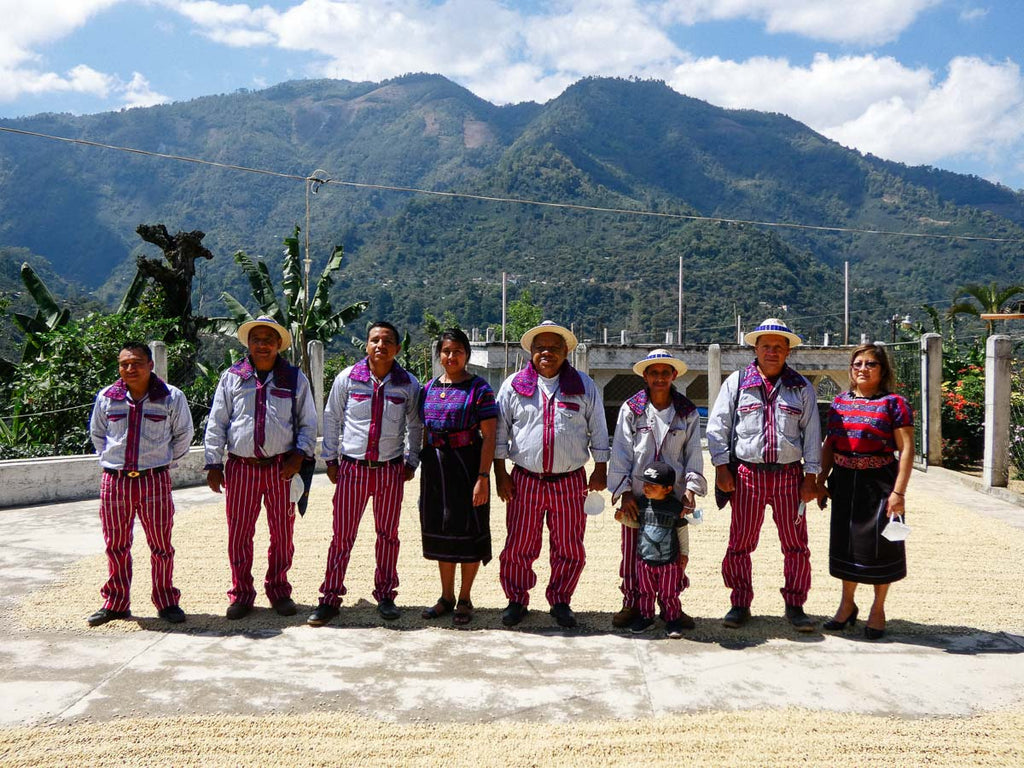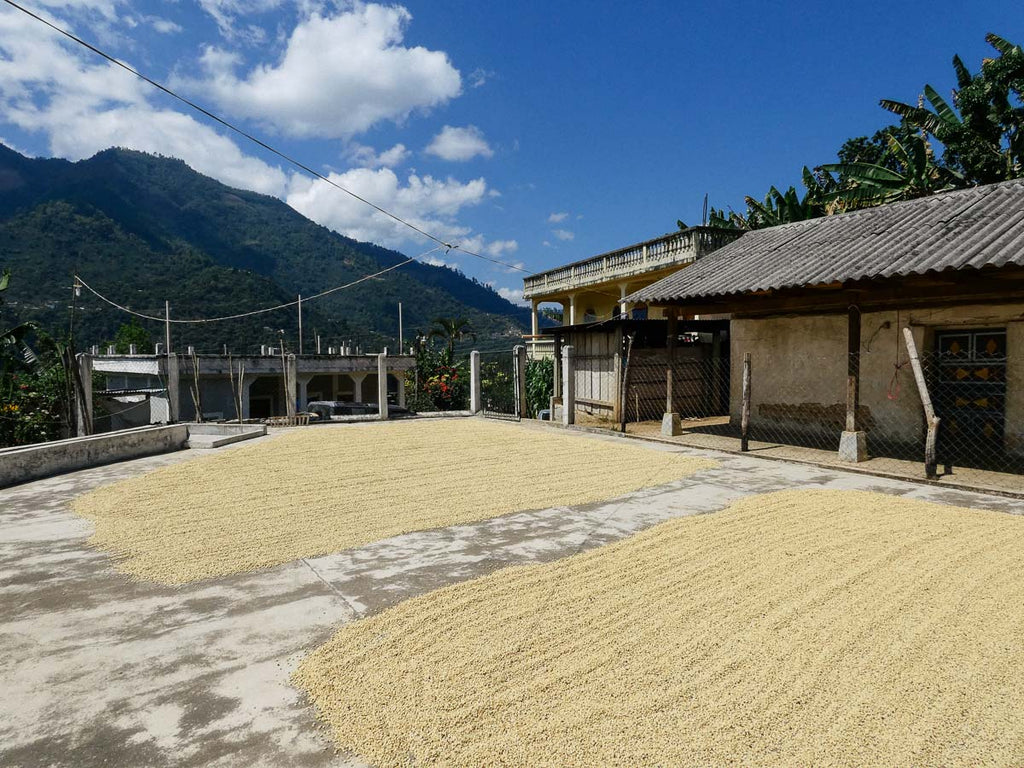Huehuetenango is a municipality in the western highlands of Guatemala, running up to the border with Mexico and encompassing a lot of microclimates across its hills and valleys. Members of the Todosantarita cooperative are based on the hills of the Sierra de los Cuchumatanes, the highest non-volcanic mountain range in Central America. Spanish is spoken here, but the dominant language is Mam, highlighting the Mayan ancestry of the area.

In 1986, 17 people created a group that was the precursor to Todosantarita and with the help and expertise of Fedecocagua, Todosantarita cooperative was formally set up 6 years later. We have been working with them for years, buying their coffee as part of a Huehuetenango SHB, but as we kept noticing their profile standing out, we decided to showcase them as one of our regional selections to highlight the great work they are doing. The Cooperative now consists of 131 members.
Recent challenges have been presented to the group in the form of increased costs of fertilisers, up to three times pre-pandemic costs, as well as a drop in available pickers in harvest times. The higher C market price driving up prices has somewhat saved them this year, though the future is very much under watchful eyes. There is a deficit of young workers coming through, as it is easier to earn better money abroad and send it back to support the family. The cooperartive having a relatively young age of 50, and a 20% member representation between 22 and 35 is a heartening sign.
There are two young technicians in the cooperative who are training and spreading good practices in the field. This includes soil conservation, terracing of land to prevent erosion, pruning, fertilisation with a focus on organic composting and appropriate application, and shade management with the introduction of Chaloum trees (Inga Shade). Soil conservation is a relatively new practice, but costly to implement, so some producers do this per plant rather than farm-wide, to make sure fertiliser gets absorbed by the soil surrounding the plant. Maintaining shade trees helps protect cherries from falling and soil erosion from the heavier rainfall that has been occurring in recent years.
Coffee when picked is fermented for 24 hours before being washed and spread on patios to dry for around 48 to 60 hours. The majority of the varietals grown is Caturra, forming roughly 65% of the crop.

* Thanks to DR Wakefield for the above information
Tasting notes include orange, peach and brown sugar.




